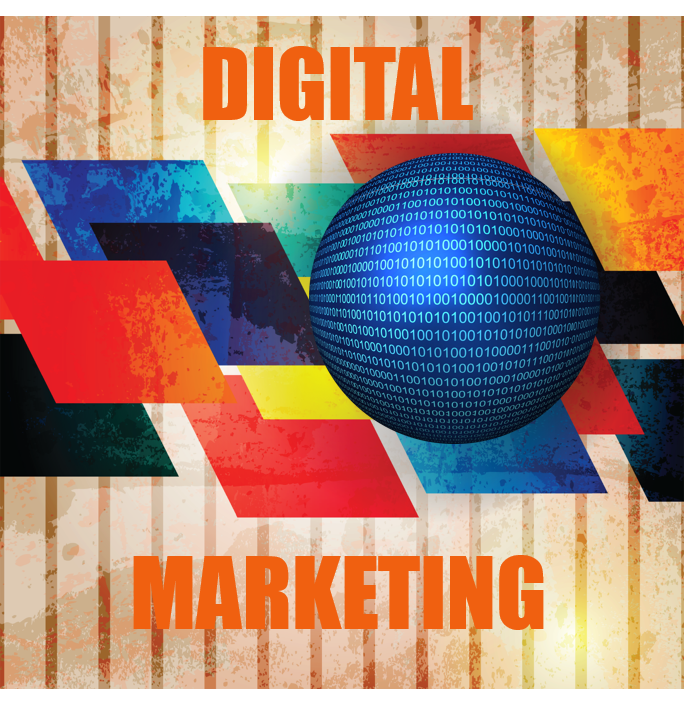When talking about big data, the modifier “big” could just as easily apply to its effect on business as it does to the amount of data being collected. The digital age is all about data and companies failing to leverage big data could find survival difficult. Big data touches almost every aspect of a business and marketing is no exception. Mahipalsinh Jadeja, a Digital Marketing Manager at Solution Analysts, notes, “Marketing has always been a flexible area to experiment with newer practices.”[1] He believes the combination of big data and cognitive technologies will change businesses forever and “marketing will be the first enterprise facet to benefit.” He adds, “The ability to learn more about customers is a smart leap over traditional processes to reach, engage and analyze customer’s attitude towards one’s brand and services. As the technology around Big Data continues to get better, Big Data will produce cost-effective ways to learn more about leads and prospects, thus revolutionizing the entire Sales Cycle processes.” He’s not alone in that assessment. Kayla Matthews (@KaylaEMatthews) explains, “It’s no surprise … advertising is … seeing an incredible shift thanks to big data. The reason why organizations and teams are now adopting the technology is simple: If you could truly understand your customers and clients, and then use that information to build highly targeted campaigns sure to boost conversions, why wouldn’t you?”[2]
The value of big data
Yossi Sheffi (@YossiSheffi), the Elisha Gray II Professor of Engineering Systems at MIT, asserts data is a company’s most valuable asset. He explains, “The well-worn adage that a company’s most valuable asset is its people needs an update. Today, it’s not people but data that tops the asset value list for companies.”[3] A similar question to the one asked by Matthews is: Why wouldn’t marketers want to tap a company’s most valuable asset? Matthews explains, “Even a single consumer’s digital footprint across a variety of apps, platforms and devices is highly valuable in today’s world. When you expand that to include entire groups or alternate demographics, the value increases considerably.” Marketers are well aware the consumer digital online footprint is growing. The staff at New England College note, “Increasingly, that’s where consumers spend their time and do their shopping. The number of online shoppers in the United States reached 209.6 million in 2016. It’s estimated to reach 230.5 million by 2021, making the U.S. one of the largest markets for online consumers in the world, according to Statista.”[4] The fact is the digital path to purchase is growing globally — not just in the United States.
This digital path to purchase growth, as well as the use of social media, means oceans of data are being generated. Nidhi Dave, a content and brand strategist at ProDesigns, reports, “It is estimated that by 2020 the accumulated volume of big data will reach 44 trillion gigabytes. With such an enormous amount of data available, marketers are able to utilize it to get actionable insights for framing efficient social media marketing strategies.”[5] According to Syed Balkhi (@syedbalkhi), CEO of Awesome Motive, the value of big data shows up on the bottom line. He explains, “Back in the day, when companies wanted to tweak their advertising, they would have to sift through their sales data, click-throughs and general behavior of their audience. But big data has changed all that. It’s changed the way that businesses market to their customers, which in turn, helps companies increase their profits. According to a BARC research report, businesses surveyed that use big data saw a profit increase of 8 percent, and a 10 percent reduction in overall cost.”[6]
Leveraging big data in marketing
“Gone are the days,” writes Jas Saran (@jas_saran), CEO of G Web Pro Marketing Inc., “when marketing decisions were guided by intuition and experience. Important marketing decisions are now determined by big data.”[7] How do you leverage big data in marketing? The experts suggest big data can be used in the following ways:
Understanding the business landscape. Steve Jones, Head of Insights & Data at Capgemini North America, explains, “The first step towards success when it comes to using big data to adapt to your competitors is to gather as much intelligence as possible. You can only respond to whatever others in the market are doing if you’re aware of their ad campaigns, for instance, meaning you really need to beef up your business intelligence gathering skills before making any sizable investment in your IT department.” Technologies, like the Enterra System of Insight and Actions™, can help marketers better understand the business landscape. The System includes the Enterra Category Management Intelligent System™, which can help predict incremental demand, and the Enterra Supply Chain Intelligence System™, which can help provide end-to-end supply chain visibility and analytics, including trade promotion optimization that accounts for competitor activities.
Predicting products that customers may want to purchase. Balkhi explains big data can tell you when customers make purchases, how customers rate their purchases, and what customers with similar buying habits are purchasing. He notes, “Obviously, the last factor is the most important one as pertains to big data.” According to Dave, “Big data increases the certainty regarding what consumers want, when they want it, and how they want it. This gives businesses insights into what their new products should be like.”
Designing better marketing campaigns. Saran explains, “Big data enables companies to better target the core needs of customers by developing rich and informative content. … Campaigns that use big data are more effective than aggregative advertising used in the past. The good thing about using big data for creating marketing campaigns is that it takes the guesswork out of determining what customers want.” Dave adds, “Big data enables personalization allowing brands to approach their customers in a more personalized way based on their choices and likes. It gives in-depth insights and a holistic understanding of the audience, which aids businesses in creating tailored communication for them to enhance retention and elevate their trust.”
Obviously, the list is informative rather than exhaustive. Once a marketer understands what data he or she needs and how to use it, their imagination is the only limitation on the value big data can produce.
Concluding thoughts
According to the staff at New England College, “No industry has experienced the revolution and disruption of technology more than marketing.” The staff adds, “Digital marketing in the past decade has transformed how businesses develop and implement marketing strategy. Where once television, print, radio, billboards and direct mail dominated the industry, the emphasis now is on reaching consumers through the digital world.” Reaching those consumers, however, still relies on making good decisions. Jones explains, “At the end of the day, the biggest secret to success when it comes to big data is learning how to leverage the insights you’ve gleaned to drive wise decision-making. … Marketers who are serious about grinding the competition into the dust need to become experts at making smart, data-informed decisions that ignore gut-feelings and instead focus on the bare facts.” Mathews concludes, “The currency of it all, so to speak, is data. Only the right data, in the right quantities, in the right form, and organized to be insightful, will help drive that growth.”
Footnotes
[1] Mahipalsinh Jadeja, “3 Ways Big Data Will Transform Marketing In 2018,” Datafloq, 22 February 2018.
[2] Kayla Matthews, “Big Data’s Impact on Advertising,” CTOVision.com, 26 January 2018.
[3] Yossi Sheffi, “What is a Company’s Most Valuable Asset? Not People,” Supply Chain @ MIT, 20 December 2018.
[4] Staff, “How Digital Marketing Has Changed Business Forever,” New England College, 2019.
[5] Nidhi Dave, “4 Major Ways in Which Big Data is Impacting Social Media Marketing,” InsideBIGDATA, 6 October 2018.
[6] Syed Balkhi, “How Companies Are Using Big Data to Boost Sales, and How You Can Do the Same,” Entrepreneur, 18 January 2019.
[7] Jas Saran, “How Can Big Data Contribute To Digital Marketing Success?” Forbes, 8 November 2018.
[8] Steve Jones, “How Marketers Can Use Big Data To Adapt To Competition,” Datafloq, 16 January 2019.





